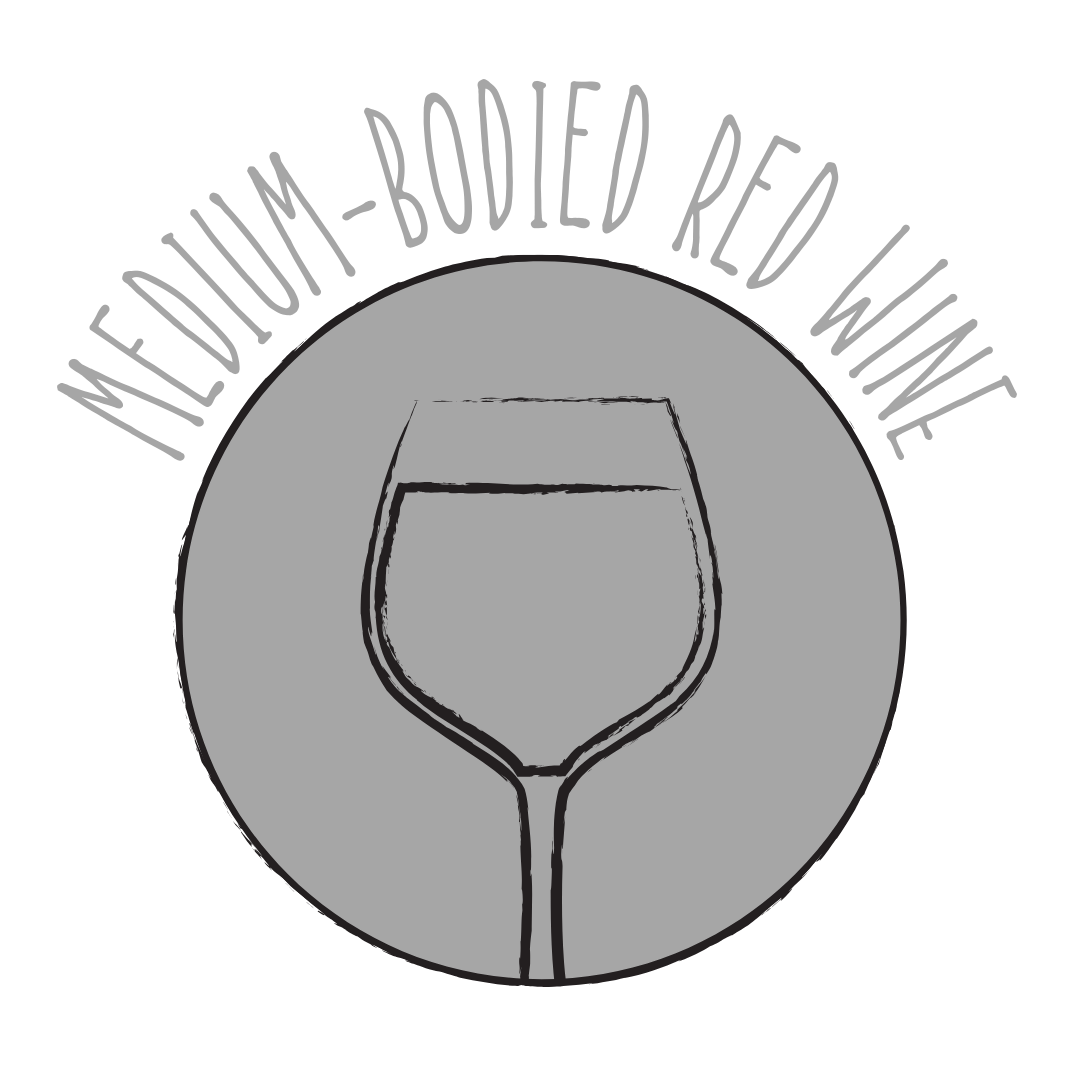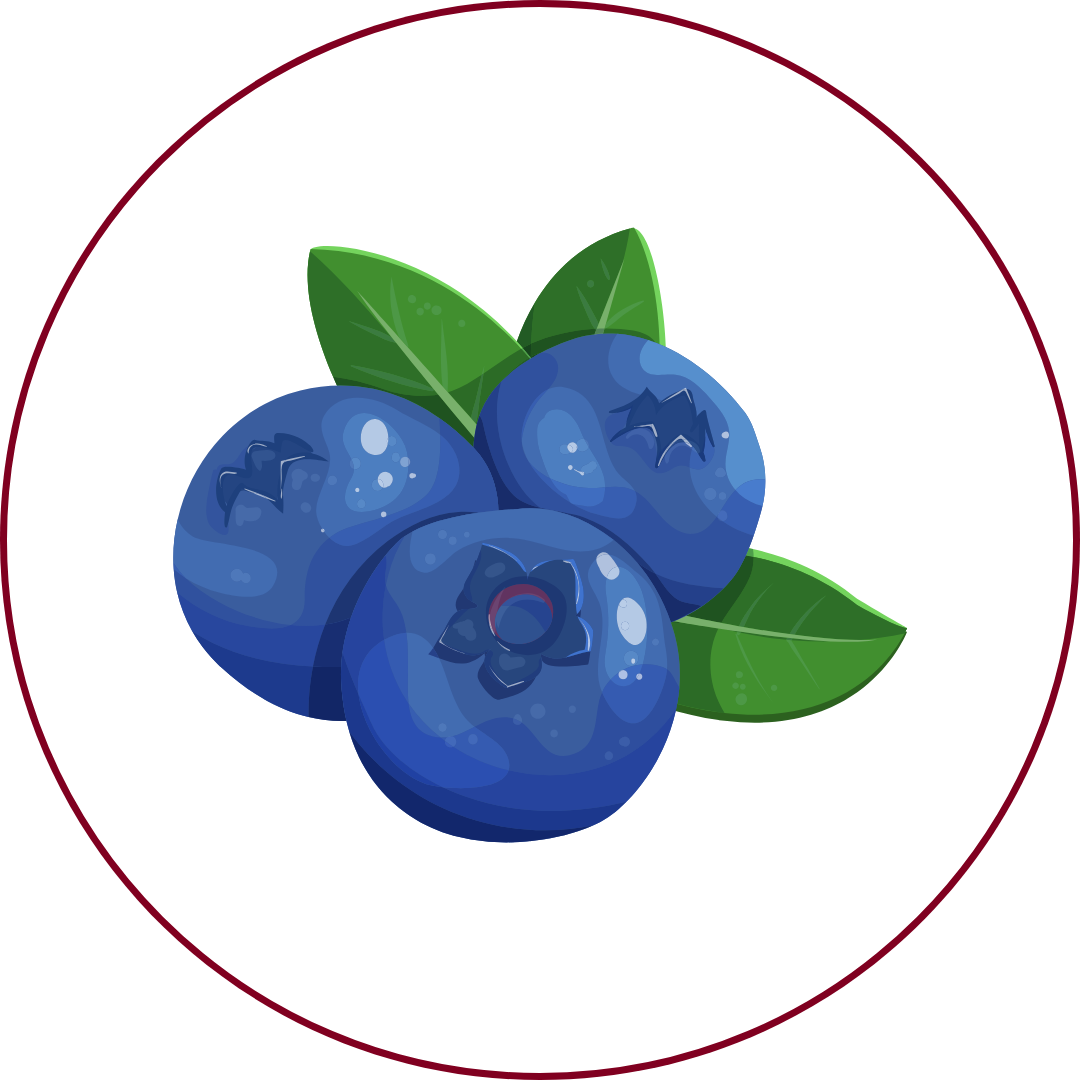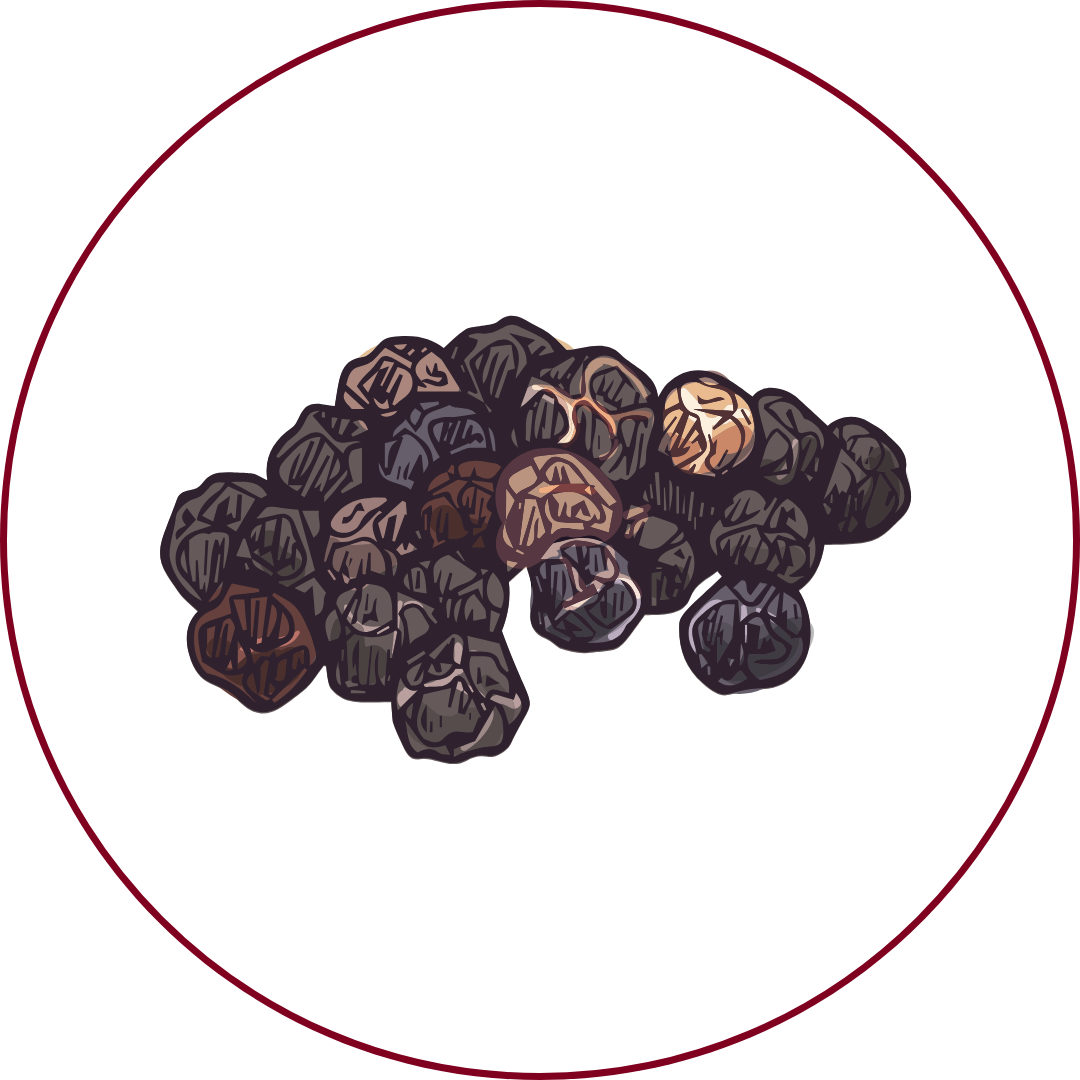Grape Variety
Petite-Sirah
"puh-TEET sih-RAH"
Wine Styles
 Sparkling
Sparkling Light White
Light White Full White
Full White Aromatic
Aromatic Rosé
Rosé Light Red
Light Red Medium Red
Medium Red Full Red
Full Red Dessert
DessertAbout Petite-Sirah
Origin
France
History
Petite Sirah, known as Durif in France, is a red wine grape variety that originated in the late 19th century. It is the result of a cross between Syrah and Peloursin, created by French botanist Dr. François Durif. The grape was introduced to California in the mid-1880s, where it became known as Petite Sirah. Despite its name, Petite Sirah is not a smaller version of Syrah; the 'Petite' refers to the small size of its berries. Today, it is primarily grown in California, Australia, and Israel, producing deeply colored, tannic wines with bold fruit flavors.
Appearance
Small, thick-skinned berries with a deep blue-black hue.
Growing Traits
Petite Sirah is known for its small berries and tight clusters, which contribute to its high skin-to-juice ratio, resulting in deeply colored wines with substantial tannins. The grape thrives in warm climates and is resistant to many diseases, making it a popular choice in regions like California's Central Valley. However, its tight clusters can make it susceptible to rot in humid conditions.
Wine Characteristics
Body
4/5
Sweetness
1/5
Tannin
5/5
Acidity
4/5
Alcohol
3/5
Full-bodied with a robust and structured profile, offering depth and intensity. Typically vinified dry, though it can exhibit ripe fruit characteristics. High tannin levels, contributing to a firm and age-worthy structure. Medium to high acidity, providing freshness and balance to its bold character. Moderate to high alcohol content, generally around 13-14%, contributing to its robust nature.
Taste Profile

Blueberry

Chocolate

Plum

Black pepper
Petite Sirah is known for its extraordinarily deep color and full-bodied flavors of blueberry, chocolate, plums, and black pepper. On the palate, it shares dark fruit flavors similar to Malbec or Cabernet Sauvignon but has a more robust and tannic profile. Its high tannins and medium bright acidity contribute to its bold structure, making it a favorite among those who enjoy intense red wines.
Food Pairing
Petite Sirah's full body, high tannins, and rich flavor profile make it an excellent match for hearty dishes. It pairs well with grilled or roasted meats, such as lamb, beef, and game. Its bold character complements rich stews, barbecued ribs, and aged cheeses. Herb-infused dishes, especially those with rosemary or sage, also harmonize with its complex flavors.
Growing Regions

United States
California

Australia
VictoriaNew South Wales

Israel
CarmelTishbi
Notable Wines & Producers
Stags' Leap Winery Petite Sirah
Stags' Leap Winery
Bogle Vineyards Petite Sirah
Bogle Vineyards
Foppiano Vineyards Petite Sirah
Foppiano Vineyards
Petite-Sirah FAQ
Common questions about this grape variety
What is the origin of Petite-Sirah?
+
France
Is Petite-Sirah wine full bodied?
+
Petite-Sirah has a body level of 4 out of 5. Which means that Petite-Sirah is Moderate to Full bodied.
Is Petite-Sirah wine dry or sweet?
+
Petite-Sirah has a dryness level of 1 out of 5. Which means that Petite-Sirah is Dry.
Where is Petite-Sirah wine from?
+
France
Where is Petite-Sirah grown?
+
Petite-Sirah is grown in United States (California)Australia (Victoria, New South Wales)Israel (Carmel, Tishbi).
What is Petite-Sirah like?
+
Petite Sirah is known for its extraordinarily deep color and full-bodied flavors of blueberry, chocolate, plums, and black pepper. On the palate, it shares dark fruit flavors similar to Malbec or Cabernet Sauvignon but has a more robust and tannic profile. Its high tannins and medium bright acidity contribute to its bold structure, making it a favorite among those who enjoy intense red wines.
What does Petite-Sirah pair with?
+
Petite Sirah's full body, high tannins, and rich flavor profile make it an excellent match for hearty dishes. It pairs well with grilled or roasted meats, such as lamb, beef, and game. Its bold character complements rich stews, barbecued ribs, and aged cheeses. Herb-infused dishes, especially those with rosemary or sage, also harmonize with its complex flavors.
What does Petite-Sirah taste like?
+
Petite Sirah is known for its extraordinarily deep color and full-bodied flavors of blueberry, chocolate, plums, and black pepper. On the palate, it shares dark fruit flavors similar to Malbec or Cabernet Sauvignon but has a more robust and tannic profile. Its high tannins and medium bright acidity contribute to its bold structure, making it a favorite among those who enjoy intense red wines.
Take Petite-Sirah Knowledge with You
Access detailed grape profiles, tasting notes, and pairing suggestions on your iPhone.
Download on theApp Store